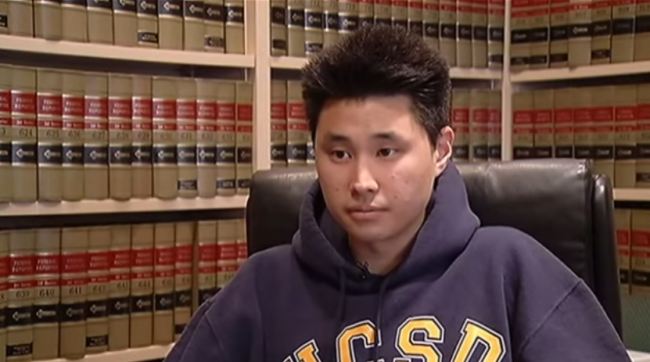by SUEVON LEE | @suevlee
editor@charactermedia.com
A day after new details surfaced regarding the exceedingly light measures taken against Drug Enforcement Agency (DEA) agents who forgot about a University of California, San Diego student locked in a holding cell for five days without food and water, a lawmaker is calling for a full civil rights probe into the 2012 incident.
Congressman Ted W. Lieu (D-California) said in a statement Wednesday that a review of DEA’s internal disciplinary process by the Department of Justice is “simply not good enough,” as he called for a full civil rights investigation into the debacle involving Daniel Chong.
Chong’s near-death experience as the result of a flubbed DEA handling of what should have been a routine processing left a stain on an agency rocked by controversy and under fire from lawmakers for its questionable internal disciplinary process.
The Korean American student was swept up in a drug raid at a friend’s house on April 21, 2012, and taken to a DEA facility in San Diego. Chong, then 23, had been smoking marijuana but was not a target of the bust. He was handcuffed and placed in a windowless holding cell and told he would be there for several minutes. He ended up trapped inside the 5-by-10-foot room for five days, without food and water, his frantic yells and bangs on the door apparently unheard by agents.
According to a DOJ Office of Inspector General report last summer, Chong, who was not charged with anything, ingested methamphetamine he found in a blanket, drank his own urine to prevent dehydration, was forced to defecate in the cell and cut himself with his glasses to try and take his own life.
After he was discovered by DEA personnel, Chong was hospitalized in intensive care for four days for dehydration, near-kidney failure and post-traumatic stress disorder. Last year, the DOJ agreed to pay Chong a $4.1 million settlement. The July 2014 OIG report said the DEA employees involved “assumed that whoever had placed Chong in the cell would return shortly to process him.”
The six DEA agents involved in the matter received a mere slap on the wrists, based on a report Tuesday by the Los Angeles Times: four received reprimands, one received a five-day suspension without pay and the supervisor in charge received a seven-day suspension.
“Four reprimands and two short suspensions does not amount to justice for Mr. Chong and his family,” Rep. Lieu said in his statement. “Mr. Chong almost died and had to undergo treatment for trauma caused by the abuse he suffered.”
Lieu’s statement added, “Those who perpetrated this abuse must be held accountable and a message must be sent that these kinds of actions can not, must not happen again.”
Julie Yoo, Chong’s attorney, told KoreAm Wednesday that while she, too, just learned the exact punishment meted out to the agents, she knew the sanctions would not have been severe.
“[The DEA] wouldn’t specifically terminate someone unless there was malicious conduct. We know that’s not typically done for law enforcement,” she said. Yoo said what’s most crucial is that the agency implement “systemic” change in light of the incident, such as better security of the facility, an overview of its policies and procedures and better supervision of agents.
According to the 2014 OIG report, the San Diego holding cell facility lacked any record-keeping methods to track detaineees’ movements. Also, individual cells lacked cameras, no single employee was assigned to just holding cell duties, there was no official training or policy regarding the holding cell area and there was no requirement that DEA employees check holding cells at the end of the day to ensure everyone had been properly processed.
DEA spokesman Rusty Payne told the Times that the lack of internal controls that led to Chong’s experience had been accounted for. “It was a terrible, tragic mistake and one we have learned from, and we are going to make sure it doesn’t happen again,” he said.
Joo said Chong today is “doing well,” had switched his major from engineering to economics and “lives a quiet life.”
___
Featured image via YouTube









